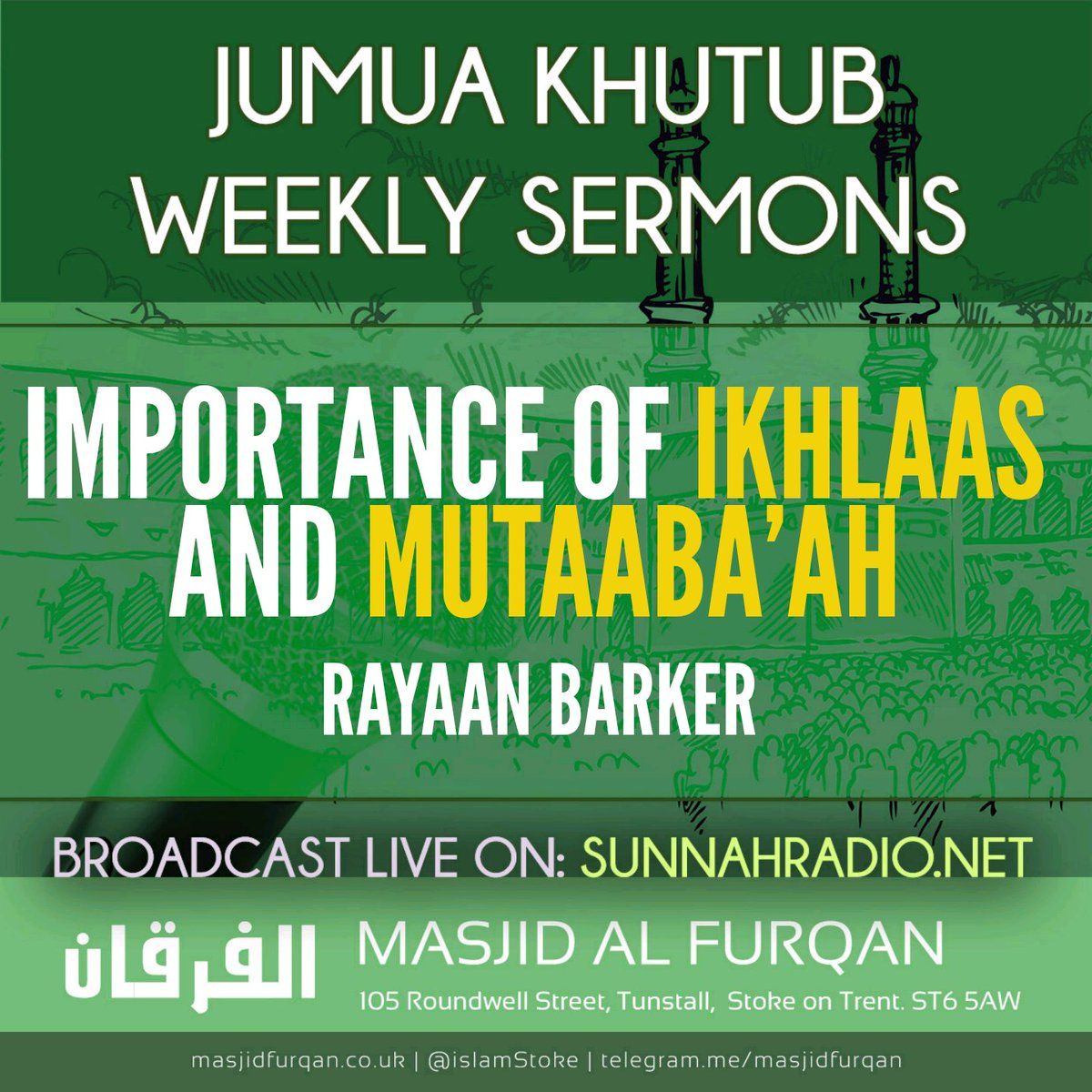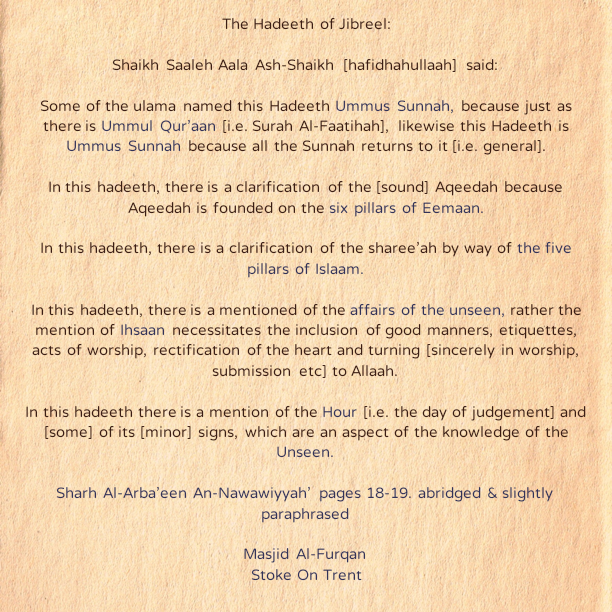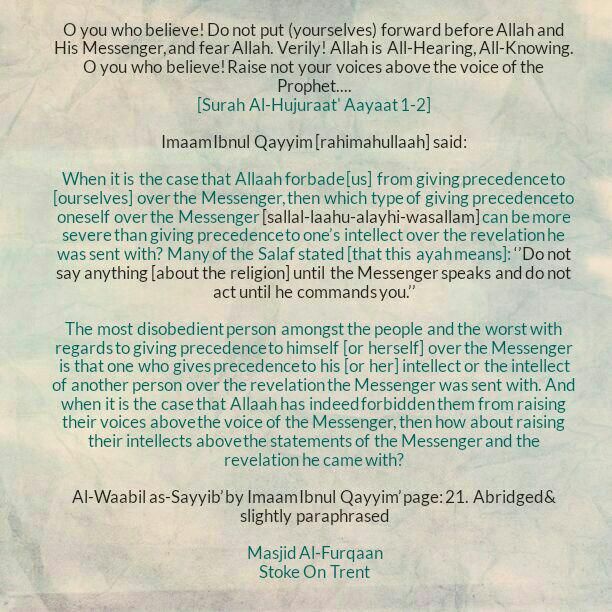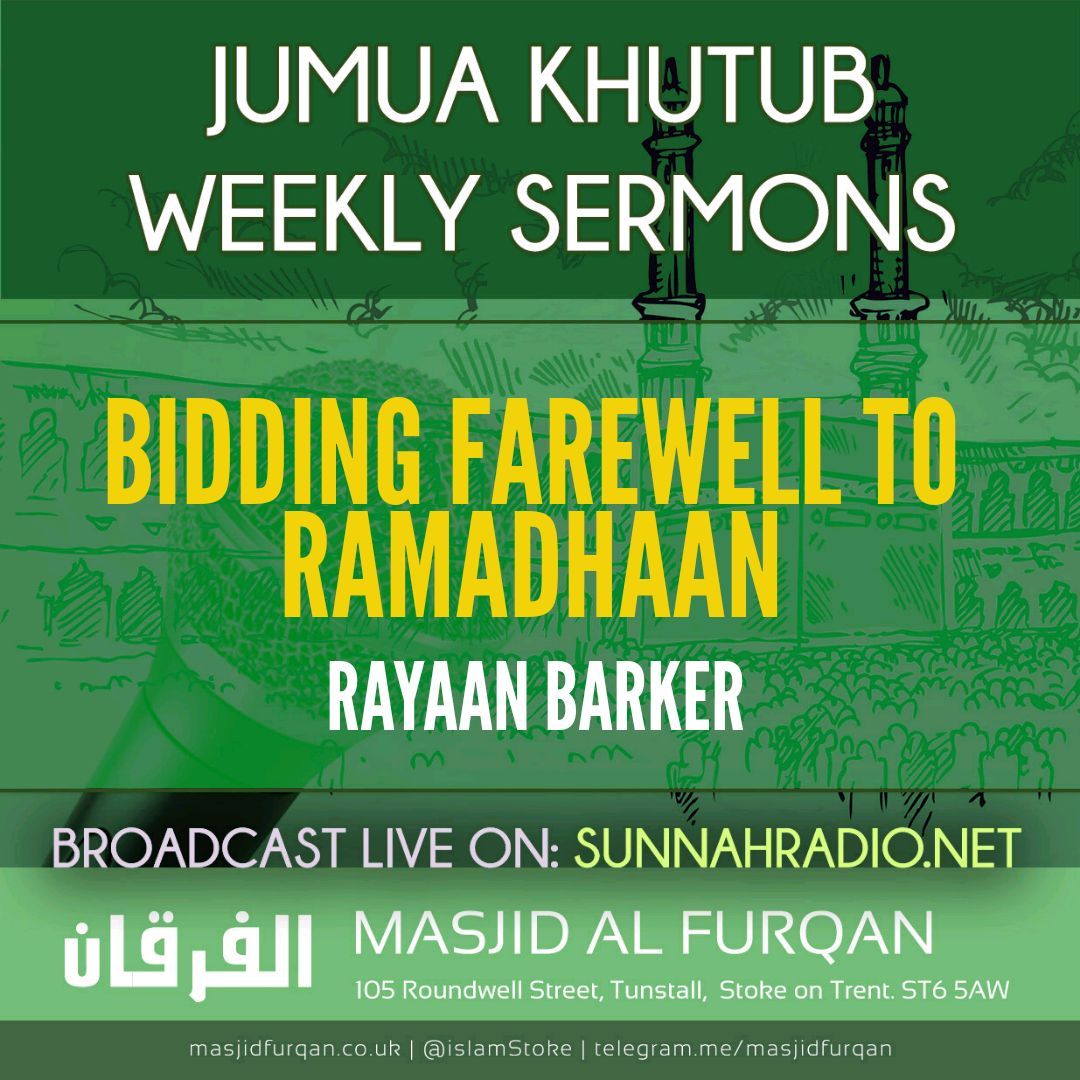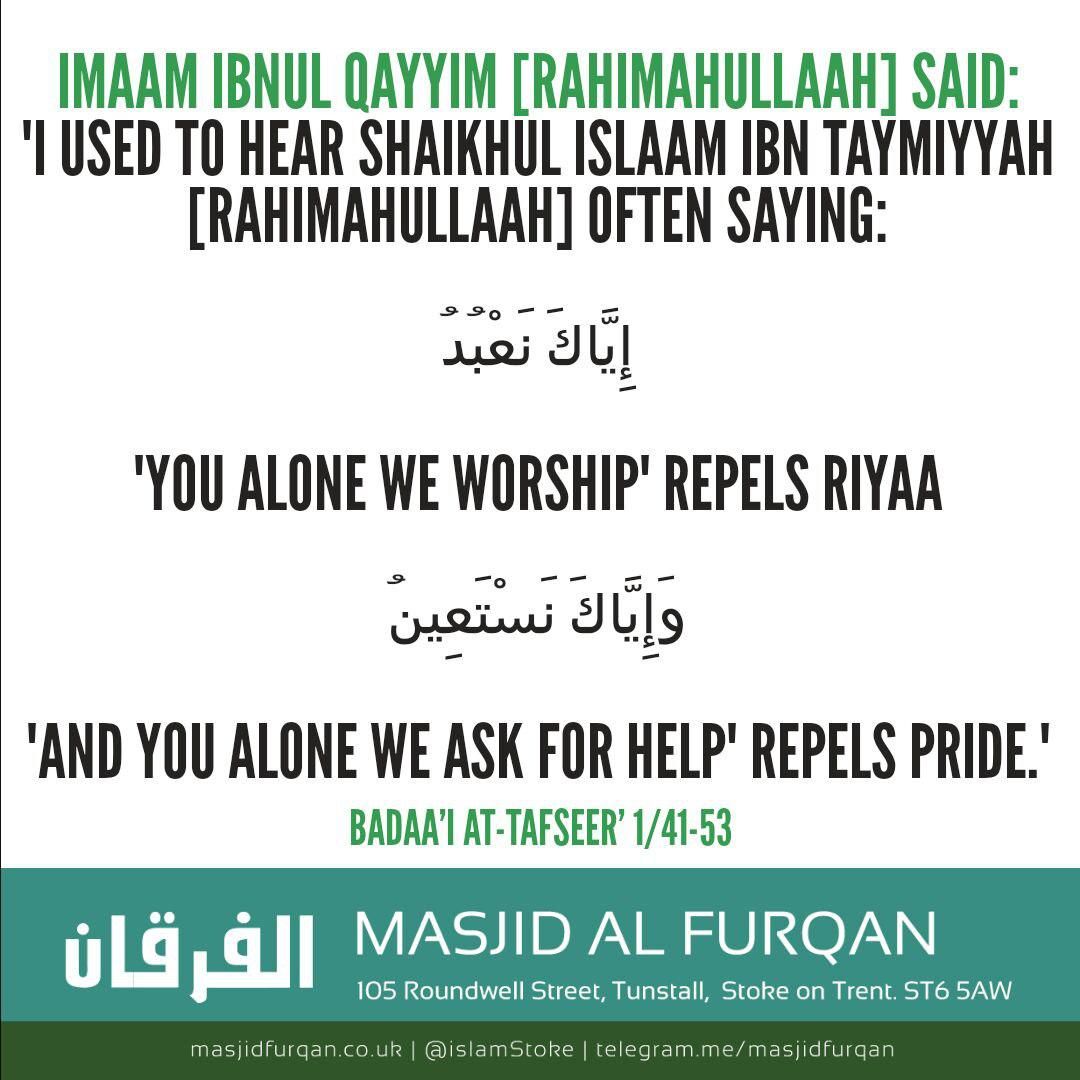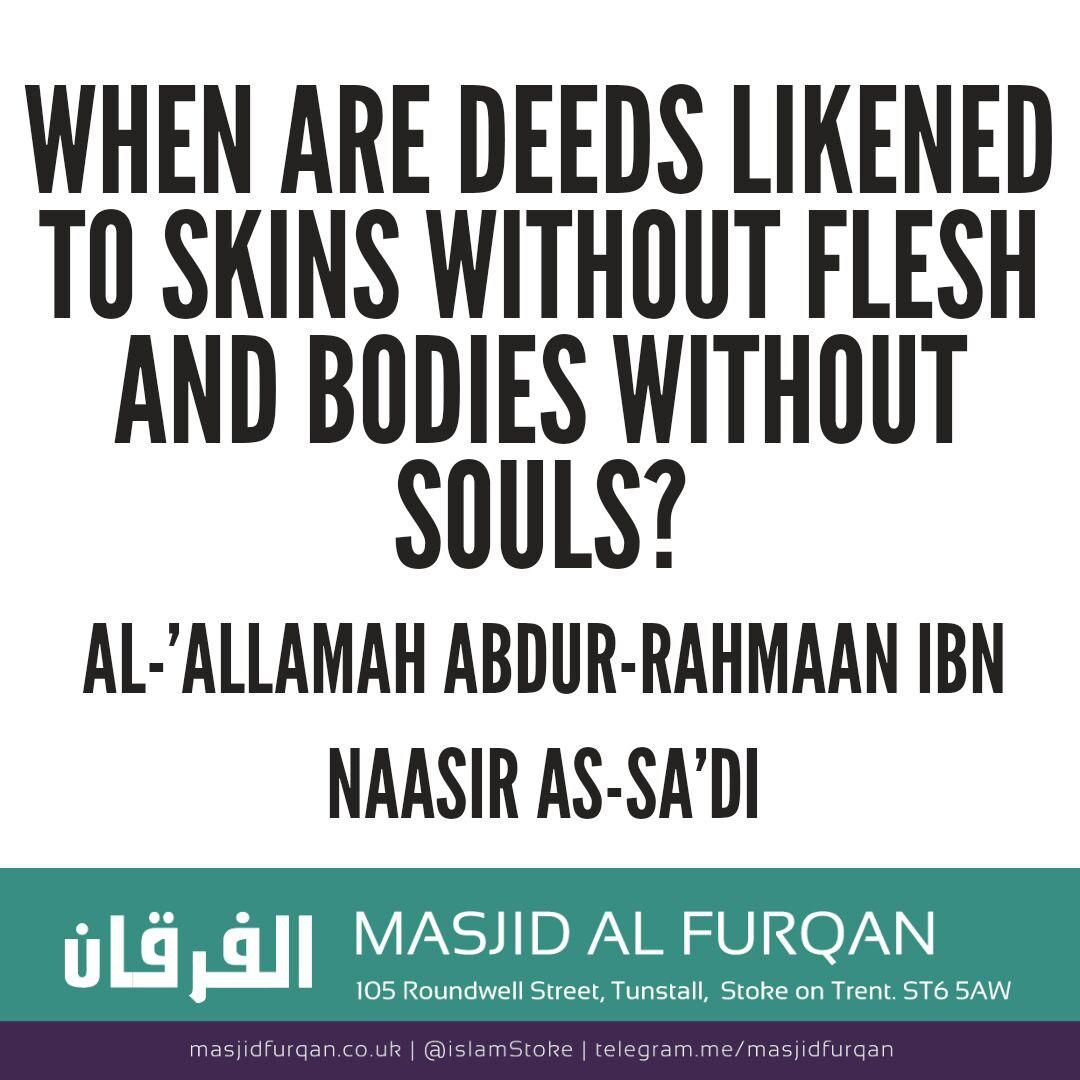[6] Basics- Revisiting and Revising The Most Important Fundamentals: [The Polytheists Understood The Meaning of The Shahaadah and What It Necessitates, But Turned Away Out of Pride]
In The Name of Allaah, The Most Merciful, The Bestower of Mercy.
The polytheists – to whom Allaah’s Messenger [peace and blessings of Allaah be upon him] was sent – understood the meaning of [Laa ilaaha Illal laah – There is no deity worthy of worship except Allaah], but they were too proud to accept it. Allaah [The Exalted] said:
إِنَّہُمۡ كَانُوٓاْ إِذَا قِيلَ لَهُمۡ لَآ إِلَـٰهَ إِلَّا ٱللَّهُ يَسۡتَكۡبِرُونَ
وَيَقُولُونَ أَٮِٕنَّا لَتَارِكُوٓاْ ءَالِهَتِنَا لِشَاعِرٍ۬ مَّجۡنُونِۭ
Truly, when it was said to them: [La ilaha ill-Allah “(There is no deity worthy of worship except Allaah),” they puffed themselves up with pride. And (they) said: “Are we going to abandon our aliha (gods) for the sake of a mad poet?] [Surah As-Saaffaat 35-36]
So, they understood that this statement [Laa Ilaaha Illal laah] necessitates that they would have to abandon their deities and the falsehood of worshipping others together with devoting worship to Allaah, and this is why Allaah stated that they said:
[أَجَعَلَ ٱلۡأَلِهَةَ إِلَـٰهً۬ا وَٲحِدًاۖ إِنَّ هَـٰذَا لَشَىۡءٌ عُجَابٌ۬ – Has he (Muhammad) made the deities into One deity?! Verily, this is a strange thing!”] [Surah Saad. 5] Meaning, this is a very strange affair. Then they advised one another to exercise patience in devoting worship to their deities. Allaah said: [ وَٱنطَلَقَ ٱلۡمَلَأُ مِنۡہُمۡ أَنِ ٱمۡشُواْ وَٱصۡبِرُواْ عَلَىٰٓ ءَالِهَتِكُمۡۖ إِنَّ هَـٰذَا لَشَىۡءٌ۬ يُرَادُ – And the leaders among them went about (saying): “Go on, and remain constant to your deities! Verily, This (i.e. Muhammad’s call) is a thing designed (against you)!] [Surah Saad. 6]
So, they addressed one another and felt elated with this patience. Allaah stated that they said:
[إِن ڪَادَ لَيُضِلُّنَا عَنۡ ءَالِهَتِنَا لَوۡلَآ أَن صَبَرۡنَا عَلَيۡهَاۚ – He (Muhammad) would have nearly misled us from our deities, had it not been that we were patient and constant in their worship!] [Surah al-Furqaan. 42]
Meaning, had we not been patient, Muhammad would have led us away from worshipping them. So, they knew the meaning of [Laa Ilaaha Illal laah – There is no deity worthy of worship except Allaah], that it meant sincerely devoting acts of worship to Allaah alone, disbelief in every deity that is worshipped besides Allaah, and that worship devoted to every other deity besides Allaah is false and that it is obligatory to disbelieve in that. Allaah [The Exalted] said: [فَمَن يَكۡفُرۡ بِٱلطَّـٰغُوتِ وَيُؤۡمِنۢ بِٱللَّهِ فَقَدِ ٱسۡتَمۡسَكَ بِٱلۡعُرۡوَةِ ٱلۡوُثۡقَىٰ -Whoever disbelieves in Taghut (every other thing worshipped besides Allaah) and believes in Allaah, then he has grasped the most trustworthy handhold that will never break]. [Surah Al-Baqarah 256]- Meaning, such a person has firmly held onto the statement [Laa ilaaha illal laah- There is no deity worthy of worship except Allaah] as opposed to those people- who came many years after the previous polytheists- who associate partners with Allaah in worship, even though they have not turned away – out of arrogance – from uttering Laa ilaaha illal laah; rather they repeat it many times, however they nullify it with their statements and actions by invoking the dead people in the graves, seeking rescue and deliverance from them, turning to them to remove difficulties and to fulfil their needs, as well as vowing and offering sacrifices to them. So, what benefit do they receive by uttering Laa ilaaha Illal laah?! Rather Laa Ilaaha illal laah benefits the one who utters it when he fulfils what it establishes- negating all worship that is devoted to other than Allaah and affirming that worship can only be devoted to Allaah alone without ascribing any partner with Allaah. So, he only invokes Allaah, seeks rescue and deliverance from Allaah alone, places his trust and reliance upon Allaah alone, and offer sacrifice and vows to Allaah alone. He does not devote any act of worship to anyone, except Allaah alone. [Ref 1]
Detail Clarifications:
Ad-Du’aa: Invocation: “Your Lord says: O people, invoke Me and supplicate to Me making your worship sincerely for Me alone, and I will answer you, and pardon you and have mercy upon you. Indeed those who disdain to worship Me alone will enter Hell-Fire in disgrace. [Soorah Ghaafir. 60]
So the noble Aayah proves that invocation/supplication (du’aa) is worship, and if that were not the case it would not be said “those who disdain to worship Me alone….” So whoever called upon anyone besides Allaah[The Mighty and Majestic], requesting something which none but Allaah has power over, then he is a mushrik (one who worships others besides Allaah), an unbeliever (kaafir), whether the one he calls upon is living or dead. Whoever requests a living person for something which he is able to do, such as the saying: ‘O so and so give me food’ or ‘O so and so give me a drink,’ then there is no harm in that. But whoever asks a dead person or someone who is absent for that, then he is a mushrik, since the deceased or the absent cannot possibly do that. So in such a case his supplicating to them shows that he believes that they have some control over the creation, and he is therefore a mushrik. It must be noted that du’aa is of two types: (i) Supplication, when a request is made (du ‘aa-u mas’alah) and, (ii) invocation through worship (du’aa-u Ibaadah). So supplication is to request ones needs and is worship when the servant requests that from his Lord. This is because it involves showing one’s poverty before Allaah [The Most High], and one’s need to turn to Him, and one’s certain faith that He is the one having full power, the Most Generous, the one who gives bounteously and is Most Merciful. Seeking one’s needs from someone else from the creation is permissible if the one to whom the request is made is able to hear and understand it, and has the power to respond to it, like the saying: ‘O so and so give me food.’ As for invocation through worship, then it is that the person does an act of worship seeking reward and fearing punishment, and this is not correct unless directed to Allaah alone. To direct this to anyone else besides Allaah is major shirk which takes a person out of the Religion, and he falls under the threat in the Saying of Allaah[The Most High], “Your Lord says: O people, invoke Me and supplicate to Me making your worship sincerely for Me alone, and I will answer you, and pardon you and have mercy upon you. Indeed those who disdain to worship Me alone will enter Hell-Fire in disgrace.” [Soorah Ghaafir. 60]
Al- Isti’aanah-Appealing for aid and assistance: The evidence for this act of worship is the verse of the Qur’aan: “O Allaah You alone we worship, and to You alone we appeal for aid” [Soorah al-Faatihah. 5] and in the hadeeth there occurs: “If you seek help, then seek the help of Allaah.” [Reported by at-Tirmidhee and declared Saheeh by Shaykh al-Albaanee in al-Mishkaat (no.5302)]
Al-isti’aanah is to appeal for assistance, and it is of various types:
(i) Appealing for aid and assistance from Allaah – this is an appeal for aid and assistance that comprises complete humility of the servant before his Lord, and to submit and entrust the affair to Him, and to be certain that He is fully sufficient for him. This is not to be except for Allaah, the Most High, alone, and the evidence is the Saying of Allaah, the Most High, “O Allaah You alone we worship, and to You alone we appeal for aid.” [Soorah al-Faatihah] The fact that this is to be for Allaah, the Most High, alone is shown by the fact that He mentions the word upon which the verb acts before the verb itself, and according to the principles of grammar of the Arabic language, in which the Qur’aan came down, bringing forward that which usually comes afterwards indicates restriction and particularisation. So directing this type to other than Allaah, the Most High, is shirk which takes a person out of the Religion.
(ii) Seeking the help of a person from the creation, in something which he is capable of helping in. Then this will be in accordance with the action in which help is sought. If it is a good action then it is permissible for the person to seek help upon it, and prescribed for a person to help in that, as Allaah [The Most High] says, “And assist one another upon righteous actions and avoidance of sins.” [Soorah Al-Maa’idah. Aayah 2]
If it is a sinful thing, then it is forbidden for the person doing it and for the one who assists, as Allaah, [The Most High] says, “And do not assist one another in abandoning what Allaah has commanded and upon transgressing the limits laid down in the Religion.” [Soorah al-Maa’idah] Aayah 2]
If it is something permissible, then it is allowed for the person to seek help and to be assisted, and the one who is helping may be rewarded for kind treatment and thus it becomes something prescribed for him as Allaah [The Most High] says, “And do good, indeed Allaah loves those who do good.” [Soorah al-Baqarah] Aayah 195]
(iii) Seeking the help of a person from the creation who is alive and present, except that it is something which he is incapable of, then this is futile and useless. For example that he seeks the help of a weak person in order to carry something very heavy.
(iv) Seeking the aid of any deceased person, or the aid of the living in a matter of the hidden and unseen, which they cannot reach. Then this is shirk since it will only be done by a person who believes that those whose help he seeks have some hidden control over the creation.
(v) Seeking help by performing deeds that are beloved to Allaah, the Most High. This is something that is prescribed due to the Saying of Allaah [The Most High], “And seek assistance through patience and Prayer.” [Soorah al-Baqarah. Aayah 45]
The author uses as evidence for the first type the Saying of Allaah [The Most High], “O Allaah You alone we worship, and to You alone we appeal for aid” [Soorah al-Faatihah Aayah 5], and the saying of the Prophet saying: “If you seek help then seek the help of Allaah”.
The evidence for seeking refuge (al-isti’aadhah) is the Saying of Allaah, the Most High: “Say: I seek refuge with the Lord of the dawn” [Soorah al-Falaq. Aayah 1] and “Say: I seek refuge with the Lord of mankind”.[Soorah an-Naas Aayah 1]
Al-Isti’aadhah-To seek refuge; which is to seek protection against that which one hates and involves seeking refuge and shelter and protection from someone, and is of various types:
(i) Seeking the refuge of Allaah, the Most High, and this involves ones complete need of Him, attachment to Him, and one’s certain faith in His being sufficient and His perfect protection from everything, whether in the present or the future, small or large, human or not, and the proof is the Sayings of Allaah, the Most High, “Say: I seek refuge with the Lord of the dawn, from the evil of that which He created…” [Soorahal-Falaq. l-2] “Say: I seek refuge with the Lord of mankind; the king of mankind; the one who is worshipped rightfully by mankind; from the evil of Satan who whispers into the hearts of mankind and then withdraws when they remember Allaah…” [Soorah an-Naas. 1-4]
(ii) Seeking refuge in one of Allaah’s attributes, such as His Speech, His Greatness, His Might, and so on. The evidence for this are his sayings: The Prophet said, “I seek refuge in the perfect Words of Allaah from the evil of that which He created” [Reported by Muslim (Eng. transl. 4/ 142l/no.654l)]. He said, “I seek refuge in Your Might that I should not be assailed from below” [Reported by Aboo Daawood (Eng. transl. 3/1408/no. 5056) and declared Saheeh by Shaykh al-Albaanee in Saheeh Sunan Abee Dawood (no. 4239)]. Also his saying in the supplication recited when suffering from pain, “I seek refuge in the Might and Power of Allaah from the evil of what I feel and am wary of.” [Reported by Muslim (Eng. transl. 3/1198/no. 5462) and Ibn Maajah (no. 3522)]. The Prophet said, “I seek refuge in Your Pleasure from Your Wrath” [Reported by Muslim (Eng. transl. l/255/no.986)]. His saying, when Allaah, the Most High, sent down His Saying: “Say He is the One fully able to send punishment upon you from above.” [Soorah al-Annam (6):65] He said: “I seek refuge in Your Face.” [Collected by al-Bukhaaree (Eng. transl. 9/370/503)].
(iii) Seeking refuge either with the dead, or with living people who are not present and able to grant refuge, then this is shirk. In this regard Allaah, the Most High, says, “And there were men from mankind who used to seek refuge with men of the jinn, and so that only increased them in transgression.” [Soorah al-Jinn. Aayah 6]
Seeking shelter with some person or in some place, or the like, as long as it is something which can serve the purpose of providing shelter. Then this is permissible and the evidence is his saying, speaking about tribulations, “Whoever exposes himself to them will be destroyed by them, and whoever finds a place of shelter or refuge from them, then let him take shelter in it” [Reported by alBukhaaree (Eng. transl. vol. 9/p. 158/no.203) and Muslim (Eng. transl. 4/1495/no.6893)]. He also explained this place of shelter or refuge in his saying, “So whoever has camels should stick to his camels…“ [Reported by Muslim (Eng. transl. 4/1495-1496/no.6896)]. There also occurs in Saheeh Muslim (Eng. transl. 3/91 I/no.4190) from Jaabir that a woman from the tribe of Banoo Makhzoom stole something, so then she was brought to the Prophet and she sought refuge with Umm Salamah. He also reports in his Saheeh (Eng. transl. 4/ 1494/no.6996) from Umm Salamah, from the Prophet that he said: “A man will seek refuge in the House and an army detachment will be sent against him…” However if it is the case that someone is seeking refuge from the evil of an oppressor, then it is obligatory to shelter him and grant him refuge as far as is possible. But if he seeks refuge in order to help him to commit something forbidden, or to flee away from an obligation, then it is forbidden to shelter him.
Al-istighaathah –To seek rescue and deliverance from severe difficulty and destruction, and is of various types:
(i) Seeking deliverance and rescue from Allaah, the Mighty and Majestic, is one of the most excellent and most perfect deeds, and it was the continual practice of the messengers and their followers. The evidence for it is what the Shaykh, rahimahullaah, mentioned, “When you sought aid and deliverance of your Lord and He responded to you that He was sending you a thousand angels in succession to assist you.” [Soorah al-Anfaal. Aayah 9]
This occurred at the battle of Badr when the Prophet saw the polytheists numbering a thousand men, whist his companions were a few more than three hundred and ten. So he entered the palm grove calling earnestly upon his Lord, the Mighty and Majestic, raising up his hands and facing the qiblah, and saying: “O Allaah fulfil that which You have promised me. O Allaah if this small group who are the people of lslaam are destroyed you will not be worshipped upon the earth.” Then he continued calling upon his Lord earnestly, with his hands raised such that his cloak fell from his shoulders. So Aboo Bakr, radiyallaahu ‘anhu, took up his cloak and cast it back upon his shoulders and embraced him from behind and said: “O Prophet of Allaah, your earnest supplication to your Lord will be sufficient for you since he will fulfil what He has promised you,” so this Aayah was sent down. [Reported by Muslim (Eng. transl. 3/960/no.4360)]
(ii) Seeking rescue and deliverance, either from the dead or from those who are living but are not present and able to give aid and rescue, then this is shirk. This is so because it will not be done except by one who believes that those people have some unseen control over the creation, and they have therefore attributed to them a share of the Lordship that is for Allaah, the Most High, alone. Allaah, the Most High, says, “Or is that which you falsely worship along with Allaah better than He Who responds to the one in distress when he calls Him; who removes the harm; and who makes you to succeed those who came before you?! Is there anything that is worshipped besides Allaah that can do these things for you?! Little do you consider the greatness of Allaah and His favours upon you, and the clear proofs He has given you, so you therefore associate others in worship with Him.” [Soorah an-Naml (27):62]
(iii) Seeking aid and rescue from those who are alive, aware of the situation and capable of assistance and rescue. It is permissible to seek aid and rescue from them: Allaah, the Most High, says in the story of Moosaa: “So the man who was upon the same Religion as Moosaa sought the aid of Moosaa against his enemy the copt, so Moosaa struck him forcefully and killed him.” [Soorah al-Qasas. Aayah 15]
(iv) Seeking rescue and aid from a living person who is not capable of assisting him, without believing that he has some hidden power. For example that a drowning person calls for rescue from a person who is paralysed. This is futility and is a mockery of the one whom he seeks rescue from, and is therefore prohibited for this reason. A further reason for its prohibition is that anyone who saw him seeking rescue from the paralysed man may be deceived into thinking that the paralysed man must have some hidden power enabling him to rescue people.
Adh-dhabh- Sacrifice: The evidence is the ayah of the Qur’aan: “Say, O Muhammad, indeed my Prayer, my sacrifice, my living and my dying are all purely and solely for Allaah, Lord of all creation. There is no share of any of that for other than him.” [Soorah al-Annam. 162-163]. Also the Prophet said: “Allaah has cursed anyone who sacrifices for other than Allaah” [Reported by Muslim (Eng. transl. 3/ 1093- 1094/no.4876)]
Sacrifice is to kill by spilling the blood of the animal in a particular manner, and is done for a number of reasons:
That it is done as an act of worship, such that he intends by it veneration of the one for whom he sacrifices, and intends it as an act of submission to him and a means of nearness to him. So this may not be done except for Allaah, the Most High, and has to be done in the manner which Allaah, the Most High, has prescribed. Directing it to other than Allaah is major shirk and the evidence (as mentioned by the author) is the Saying of Allaah, the Most High, “Say, O Muhammad, indeed my Prayer, my sacrifice, my living and my dying are all purely and solely for Allaah, Lord of all creation. There is no share of any of that for other than Him’ [Soorah al-Annam (6):162-3]
(ii) That it is done out of hospitality for the guest, or for as wedding feast (waleemah) or the like, then this is something commanded, either as an obligation or a recommendation, as he said “Whoever truly believes in Allaah and the Last Day, then let him treat the guest honourably” [Reported by al-Bukhaaree (Eng. transl. 8/99/no. 156) and Muslim (Eng. transl. 3/935/no. 4286)]. He said to ‘Abdur-Rahmaan ibn ‘Auf, “Give a wedding, feast (waleemah) even if it is only with a single sheep” [Reported by al-Bukhaaree (Eng. transl. 7/72/no.96)]. (iii) That it is done to provide food charitably, or to sell the meat and so on, then this falls under that which is permissible and is in principle according to the Saying of Allaah, the Most High, “Do those mushriks who worship others along with Allaah not see that We have created for them, from what our Hands have created, cattle which they are in charge of, and We have made the cattle subservient to them: so from them are those which they eat the meat of.” [Soorah Yaa Seen. 71-72] Furthermore, it may be something desirable or prohibited depending upon what it leads to.
An-Nadhr- Vows: The evidence is the ayah: “They fulfil their vows and they fear a day whose evil is widespread”. [Soorah al-Insaan. 76-:77]
The Aayah is a proof since Allaah praises them for fulfilling their vows, which shows that Allaah loves that and every action that is beloved to Allaah is worship. This is further supported by the Saying of Allaah, the Most High, “…they fear a day whose evil is widespread.” [Soorah al-Insaan. 7]
The fulfilling of vows which Allaah, the Most High, has praised are all acts of worship which Allaah, the Mighty and Majestic, has obligated. This is because when a person starts any of the obligatory acts of worship, then he has become duty bound to fulfil and complete them. The proof for this is the Saying of Allaah, the Most High, “Then let them complete the duties of their hajj, and fulfil their vows (e.g. the sacrifice), and let them perform the tawaaf of ifaadah around the ancient House.” [Soorah al-Hajj 29]
Vows by which a person makes a pledge and thus obligates himself to do something or other, or makes some act of obedience to Allaah, that is not obligatory, binding upon himself, then this is disliked, and some of the scholars declared it to be forbidden. This is because the Prophet forbade making vows and said, “It does not bring good, it merely causes the miserly person to spend” [Reported by al-Bukhaaree (Eng. transl. 8/448/no.684) and Muslim (Eng. transl. 3/871/no.4019)]. Yet even so, if a person does go ahead and vow that he will do some act of obedience to Allaah, then it becomes obligatory upon him to perform it as the Prophet said, “Whoever vows to act in obedience to Allaah, then let him obey Him” [Reported by al-Bukhaaree (Eng. transl. 8/449/no.687)].
So in summary vows (an-nadhr) applies to the obligatory acts of worship in general, and to making vows in specific, which is that a person obliges himself to do something for the sake of Allaah, the Mighty and Majestic. The scholars divide the vow into various categories and these are laid out in the books of fiqh (details of Islamic law and regulations). [Ref 2]
NB: Whoever directs the above acts of worship to others besides Allaah, then indeed he or she has committed major shirk [major polytheism] which expels a person from the fold of Islam but this is a general ruling. However, in order to declare a specific Muslim individual as one who has left the fold of Islaam due to him or her committing acts of major polytheism, this ruling cannot be given, except by a scholar. Regarding this affair, see the following links:
http://www.manhaj.com/manhaj/articles/wwqny-takfir-and-the-excuse-of-ignorance-shaykh-muhammad-bin-abd-al-wahhaab.cfm
http://www.manhaj.com/manhaj/articles/wvnjp-takfir-and-the-excuse-of-ignorance-shaykh-abd-al-aziz-bin-baz.cfm
http://www.manhaj.com/manhaj/articles/obkwf-takfir-and-the-excuse-of-ignorance-shaykh-saalih-al-fawzaan.cfm
http://www.manhaj.com/manhaj/articles/dkhtd-takfir-and-the-excuse-of-ignorance-shaykh-saalih-al-fawzaan-2.cfm
http://www.manhaj.com/manhaj/articles/gzrsz-takfir-and-the-excuse-of-ignorance-shaykh-saalih-al-fawzaan-3—takfir-of-the-raafidah.cfm
http://www.manhaj.com/manhaj/articles/illhh-takfir-and-the-excuse-of-ignorance-shaykh-saalih-al-fawzaan-4—takfir-of-the-raafidah.cfm
http://www.manhaj.com/manhaj/articles/uufmf-takfir-and-the-excuse-of-ignorance-shaykh-saalih-al-fawzaan-5.cfm
http://www.manhaj.com/manhaj/articles/uncnb-takfir-and-the-excuse-of-ignorance-shaykh-abd-al-muhsin-al-abbaad.cfm
http://www.manhaj.com/manhaj/articles/ecksy-takfir-and-the-excuse-of-ignorance-shaykh-rabee-bin-haadee.cfm
[Ref 1: [Source: Explanation of Important Lessons For The Muslim Ummah. pages 44-45. Maktabah Malik Al-Fahad 1436AH. (2015)]
[Ref 2: Explanation of the Three fundamental principles. (Translated by Shaikh Abu Talhah Dawud Burbank (may Allaah have mercy upon him and his wife. Aameen)]

